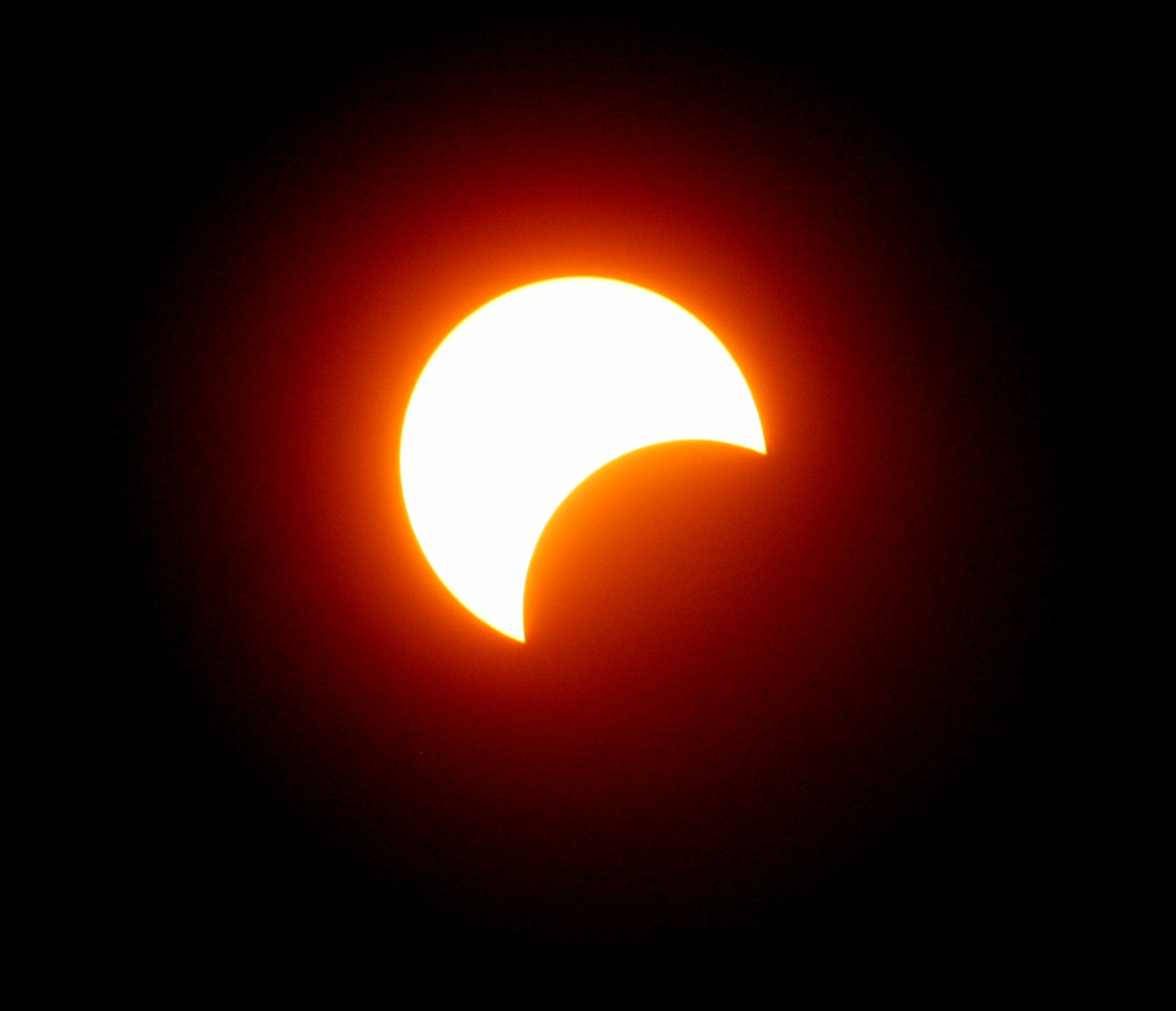
But this Monday morning will be well worth getting out of bed for, because the sun will rise off the coast of Dunedin with a rather unusual "chunk bitten out of it".
No parts of the sun will actually be eaten or harmed in the making of the sunrise.
Rather, it will be partly obscured by the moon rising in front of it.
Dunedin astronomer Dr Ian Griffin said the partial solar eclipse would come just a couple of weeks after a total lunar eclipse, which turned the moon from bright white to shades of red, purple and blue over Otago on September 8.
He said the partial solar eclipse would occur between 6.28am and 8.22am on Monday.
"That will be a special eclipse too because it will happen at sunrise, and the sun will rise over the ocean with a chunk bitten out of it."
At this stage, MetService is forecasting fine, clear weather, with a high of 18°C on Monday.
Dunedin Astronomical Society president Warren Hurley said if the weather forecast held up, Dunedin and the Catlins coast would be the best places to see the eclipse.
"It’s occurring mostly in the Southern Ocean, between here and Antarctica.
"Any Dunedin household with a low horizon to the east will see the eclipse as the sun and moon move higher in the sky.
"The moon will slowly cover more of the sun, reaching a maximum of nearly 80% coverage at 7.12am.
"From there, the moon slowly slides away, showing smaller and smaller bites from the sun, until 8.22am."
Mr Hurley said it was not safe to look directly at the partial eclipse with the naked eye.
Instead, he recommended viewers construct a pinhole viewer, use a safe sun filter or wear safe solar-viewing glasses.
The Dunedin Astronomical Society would also have a solar scope set up next to the Beverly-Begg Observatory, in Robin Hood Park, from 6.15am to 8.30am, he said.
Dr Griffin said astronomy fans had more to look forward to early next year.
The third of three total lunar eclipses within a period of less than 12 months would occur on March 2-3.
The first was a total lunar eclipse on March 13-14 this year, when totality lasted for just over an hour, and the second total lunar eclipse was on September 7-8 and lasted 82 minutes.
But we would have to wait a while before the next total solar eclipse became visible in Dunedin, Dr Griffin said.
That would not be until July 22, 2028.












